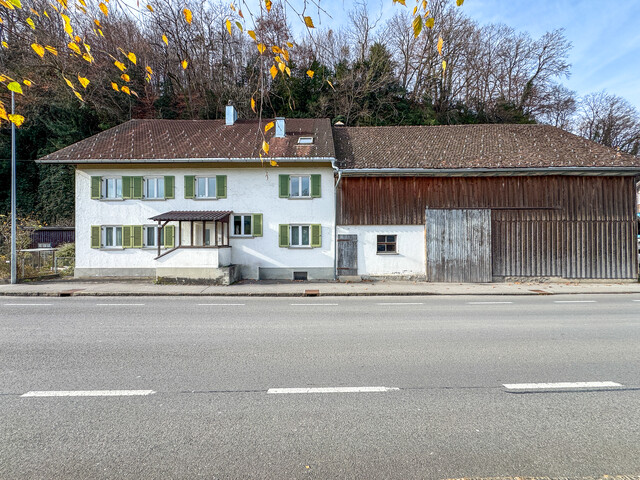Claus Peymann is dead

Claus Peymann passed away on Wednesday at the age of 88 in Berlin, as reported by the "Süddeutsche Zeitung" on Wednesday evening, citing Peymann's family environment. Peymann will be remembered not only for his legendary Thomas Bernhard productions but also for his striking remarks.
Theater Maker Claus Peymann Began Career in Frankfurt
Claus Peymann was born on June 7, 1937, in Bremen. He began his career as a director and theater manager from 1966 to 1969 as the chief director at the Theater am Turm (TAT) in Frankfurt, where he premiered works such as Peter Handke's "Offending the Audience" (1966), "Kaspar," and "The Ward Wants to Be Guardian," as well as Gerlind Reinshagen's "Doppelkopf." In 1970, he established his long-standing working relationship with the Austrian author Thomas Bernhard by premiering Bernhard's first play "A Party for Boris" at the Hamburg Schauspielhaus, a relationship that would lead to numerous premieres of Bernhard's works.
In 1971, he co-founded the new Schaubühne at Hallesches Ufer in Berlin with Peter Stein. There, he directed the premiere of Handke's "Ride Across Lake Constance" (1971). From 1974, Peymann served as the drama director at the Württemberg State Theaters in Stuttgart, where he gained attention with his classic productions ("The Robbers," "Käthchen of Heilbronn," "Faust I and II," "Iphigenia"). In 1977, the collection of donations for the dental treatment of Baader-Meinhof prisoners caused a stir. Consequently, Peymann declined an extension of his Stuttgart contract and took over the management of the Schauspielhaus in Bochum, which, under his direction from 1979-86, developed into one of the best theaters in Germany according to expert critics.
Heldenplatz Premiere Sparked Discussions
His tenure as director of the Burgtheater, which he took over in 1986 following Achim Benning, was later repeatedly referred to by Peymann as the "king stage." Under his leadership, 252 premieres, including 51 world premieres, were staged at the Burgtheater, where he remained loyal to authors Handke and Bernhard, as well as Peter Turrini and Elfriede Jelinek. Not all of the most spectacular actions took place on stage; sometimes an interview with "Zeit" caused more of a stir than most performances could.
The controversies surrounding the premiere of Bernhard's play "Heldenplatz" in 1988 reached an intensity previously unknown and made the premiere "perhaps the most legendary date in Austrian theater of the Second Republic" (Peymann in "News"). With 120 performances, "Heldenplatz" became the most performed production during Peymann's directorship.
"Ignorant and Madman"
After his directorship at the Burgtheater, he led Brecht's former theater at Schiffbauerdamm from 1999 to 2017. He called the final auction of treasures from the Berliner Ensemble's collection "Peymann Cleans Up," and his 2016 published "collected works," in which he traces his path "through the depths and heights of theater art," "Murder and Manslaughter."
When Peymann was awarded the "Nestroy" theater prize for his life's work in Vienna in 2002, the laudation by André Heller and remarks by the moderator Andrea Eckert caused political uproar afterward. Shortly thereafter, Peymann renounced the prize "under the impression of the unworthy spectacle and provincial fuss that erupted around the Nestroy prize award to me."
Only ten years later, on the occasion of a "birthday snack" for his 75th at the Berliner Ensemble, did he accept the lifetime achievement award for the second time, after the statue had been kept in the Theater Museum in Vienna in the meantime. In 2012, he was also appointed an honorary member of the Burgtheater by the then Burgtheater director Matthias Hartmann. Colleague Maria Happel characterized him succinctly and aptly in her laudation at the time: "You are both, the 'Ignorant and the Madman'."
Politics mourns Claus Peymann
The death of the long-time Burgtheater director Claus Peymann prompted numerous reactions on Wednesday evening. Federal President Alexander Van der Bellen wrote on "X": "The Peymann era has come to an end, the great magician of the theater is dead. For many years, Claus Peymann not only wrote theater history but also history on the German-speaking stages. Especially at the Vienna Burgtheater, he quickly became a cult figure and a point of contention. Claus Peymann was a contentious figure who struck sparks of theater from this contention like hardly anyone else."
Vienna's Mayor Michael Ludwig (SPÖ), via press release: "The death of Claus Peymann shakes the theater world. Especially the theater city of Vienna. Because the German theater maker, as director of the Vienna Burgtheater - building on the work of his predecessor Achim Benning - not only brought the importance of 'the Burg' but also the entire theater scene in our city to the center of public interest."
Veronica Kaup-Hasler, Vienna's City Councilor for Culture (SPÖ), via press release: "Hardly anyone in recent times has so sustainably shaken, challenged, and redefined the understanding of political theater. Claus Peymann stood for an actor's theater and a close connection to the authors of his time. (...) He understood theater as a political force that exposed social grievances and challenged the unconditional dialogue with each other."
Werner Kogler (Cultural Spokesperson for the Greens), via press release: "With Claus Peymann, the theater world loses one of its most distinctive and influential personalities. His work as a director and artistic director has significantly shaped the German-speaking theater landscape over decades and repeatedly sparked lively discussions. Peymann was an artist who understood and lived theater as a critical mirror of society."
Shock over the death of Claus Peymann also in Germany
Berlin's Governing Mayor Kai Wegner (CDU) on "X": "Claus Peymann was one of the most influential figures in modern German theater. With commitment, courage to engage in confrontation, and great passion, he significantly shaped Berlin's culture. We lose a contentious spirit - and a great theater maker."
German Minister of State for Culture Wolfram Weimer (independent) on "X": "We bow to a great life's work and mourn Claus Peymann. He was a titan of the theater, a master of provocation and renewal. A director who always understood the stage as a battlefield."
(APA/Red)
This article has been automatically translated, read the original article here.
Du hast einen Hinweis für uns? Oder einen Insider-Tipp, was bei dir in der Gegend gerade passiert? Dann melde dich bei uns, damit wir darüber berichten können.
Wir gehen allen Hinweisen nach, die wir erhalten. Und damit wir schon einen Vorgeschmack und einen guten Überblick bekommen, freuen wir uns über Fotos, Videos oder Texte. Einfach das Formular unten ausfüllen und schon landet dein Tipp bei uns in der Redaktion.
Alternativ kannst du uns direkt über WhatsApp kontaktieren: Zum WhatsApp Chat
Herzlichen Dank für deine Zusendung.








